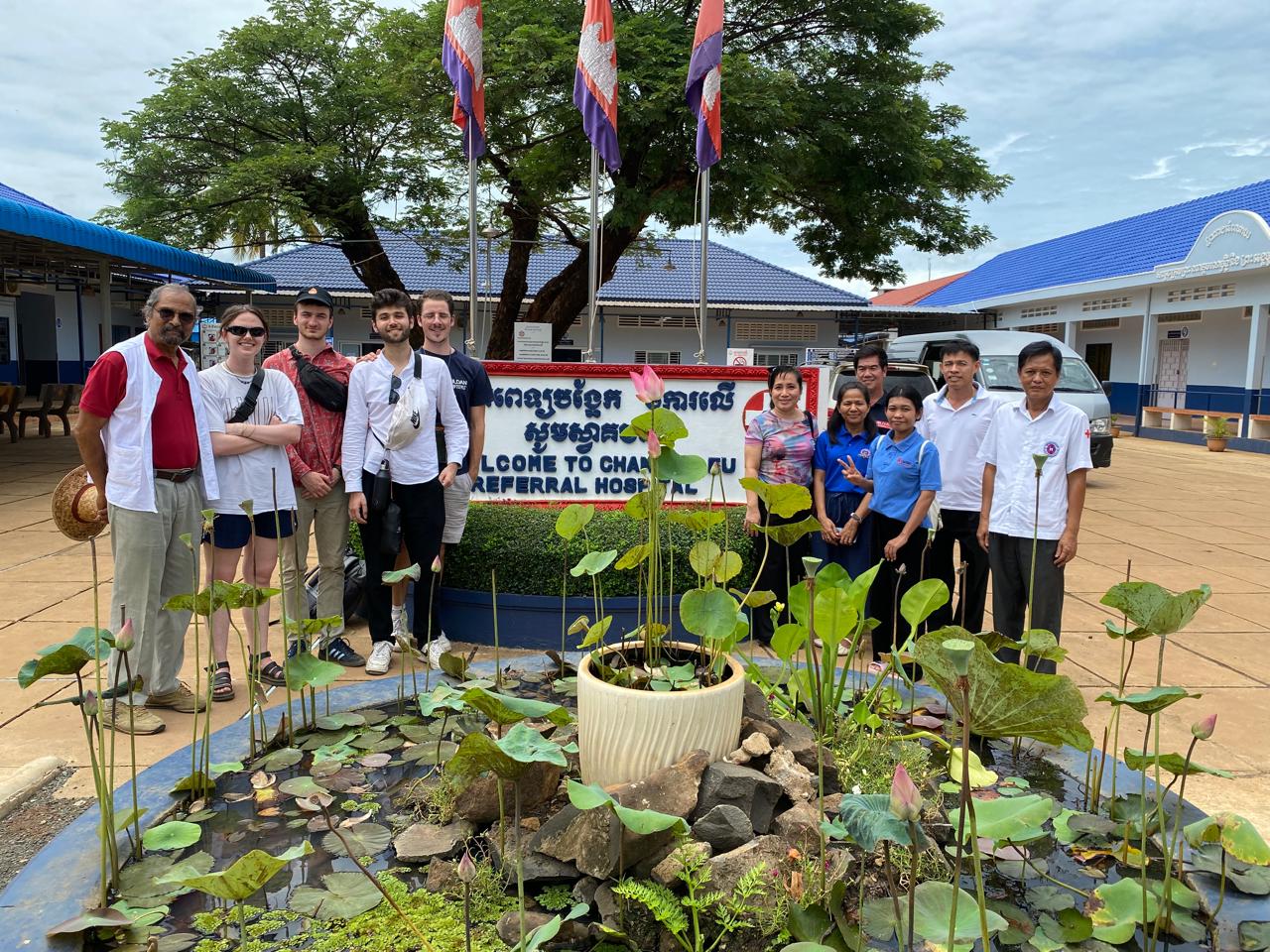ULB students develop project to help ensure reliable power for remote Cambodian medical services

Despite Cambodia's rapid electrification in recent years, power cuts are a frequent occurrence in the country, particularly in remote areas where the network is least developed. This poses a major challenge to medical services, particularly in a context where teleconsultation has become common practice since the COVID-19 pandemic.
To improve continuity of care and strengthen connections between different levels of hospital services - from the capital to the most remote areas in the Kampong Cham region - an ambitious project was proposed for engineering and bioengineering students at the Université libre de Bruxelles, as part of their training.
A successful first stage of the project
The first stage of the project was carried out in Brussels, in ULB's laboratories, where the students studied the specific needs of the health centres where the prototype was to be installed. They were in permanent touch with the local partners to clarify their requirements.
Based on these analyses, the students were able to design a prototype that met the needs of the field. Once this design phase was complete, the team went to Cambodia to install the prototype in a hospital, with the help of local technicians. The students also provided full training to local teams to enable the technology to be reused and maintained in other medical centres in the country.
Working on this project enabled us to deepen our technical skills, but it was above all in the field in Cambodia that we really understood the importance of our work. Seeing the fruits of our teamwork with local partners proved to be a very enriching experience in our journey as future engineers”, stated one of the students.
Discussions are underway to extend this initiative to other hospitals.
This project has not only enabled us to put into practice our knowledge as part of our training, but it has also strengthened our commitment to international cooperation initiatives. We hope that this kind of partnership between students can continue and expand to other areas, while reinventing itself and taking into account current issues linked to cooperation”, concluded a member of the team.
The next stage of the project could even include the installation of solar panels within larger departments to ensure even greater energy autonomy, and reducing dependence on the public power grid and increasing power reliability. This proposal paves the way for other avenues of collaboration in future years, aimed at further strengthening infrastructure in remote areas of Cambodia and the partnership established with local partners.
Other Highlights this month:
UofG-lead research team tracks new ways to tackle tuberculosis transmission in Africa
